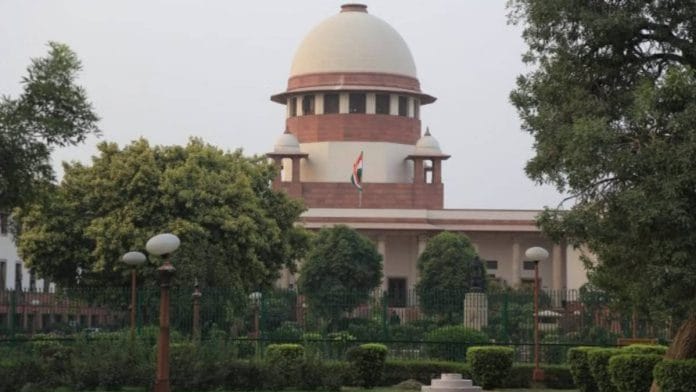New Delhi: Pulling up a West Bengal trial court for routine adjournments in a 2021 rape case, the Supreme Court has formulated a set of seven guidelines for speedy trials, observing that criminal trials cannot drag on indefinitely or be conducted in bits and pieces.
It has suggested that all high courts issue these guidelines to district judges and set up committees to look into the practice of regular adjournments.
The seven points formulated by the Supreme Court for trials to be held on a day-to-day basis, in order to deliver speedy justice, are: Witnesses must be examined on a day-to-day basis, and adjournments cannot be granted for an advocate’s convenience, except in rare situations. If lawyers attempt to stall proceedings, courts can cancel bail, appoint an amicus curiae (“friend of the court” appointed to assist the court), or impose costs. Judges must also prepare witness schedules in advance and route summons through prosecutors to avoid delays.
A bench of Justices J.B. Pardiwala and K.V. Viswanathan issued the directions while hearing an appeal by the Central Bureau of Investigation (CBI) against the Calcutta High Court’s decision to grant bail to one Mir Usman in a case of rape. ThePrint has seen the SC order.
Usman spent three-and-a-half years in custody before his bail was granted last year, while the case was still at the stage of cross examination before the additional sessions judge in the Purba Medinipur district of West Bengal.
Examination and cross-examination are stages in a criminal case. Examination-in-chief is the stage where the party calling the witness, questions them to establish facts. On the other hand, cross-examination is the stage where the opposing party questions the witness to test the accuracy and credibility of their testimony.
The Supreme Court flagged glaring delays in proceedings before the trial court in this particular case, including a gap of four months between stages of recording evidence.
Post some cross-examination of the victim in August 2025, the trial court adjourned the matter to December 2025, an adjournment of four months for the same witness.
Upon the Supreme Court’s insistence on a status report from the trial court, the judge cited the victim’s illness during the last hearing, heavy pendency before the court, and the impending Durga Puja break for the long adjournment.
Rejecting the CBI’s appeal, the top court refused to cancel Usman’s bail and directed the trial court to make all possible efforts to ensure that the trial is completed and its decision is delivered by 31 December of this year.
Before the court, the CBI revealed that the public prosecutor planned to examine over 30 witnesses in the rape case, a figure originally pegged at nearly 60 witnesses.
The apex court expressed shock at the public prosecutor’s contention and reiterated that it was the quality of evidence, not quantity, that was the relevant metric and there must not be unnecessary examination of witnesses.
“We fail to understand why the public prosecutor wants to examine 30 witnesses in a trial for the offence of rape. What is the idea in multiplying the witnesses on one particular issue or the other?” it said in the order.
The court reiterated that trials must move expeditiously and focus on essential testimony.
‘Slow motion syndrome’
Section 346 of the Bharatiya Nagarik Suraksha Sanhita 2023 (earlier, Section 309 of the Code of Criminal Procedure, 1973) provides for a court to adjourn or postpone proceedings. Section 346 mandates expeditious proceedings, day-to-day examination of witnesses, and adjournments only for special reasons recorded in writing.
The SC bench recalled several earlier decisions, including a 2000 apex court order that criticised the “fashion” of repeatedly adjourning cases until witnesses tire out and give up, turning courts into “unwitting parties to miscarriage of justice”.
The SC said that it did not approve of the prevailing practice in trial courts of adjournment and huge time gap between examination and cross-examination of witnesses.
“We are at pains to note that it is almost a common practice and regular occurrence that trial courts flout the said mandate (of expeditious proceedings) with impunity. Even when witnesses are present, cases are adjourned on far less serious reasons or even on flimsy grounds,” it observed.
Reiterating that the right to speedy trial was an integral part of Article 21, which guarantees the right to life and personal liberty, the judges’ said fairness was not just about procedure but also ensuring that the procedure ensured fairness and expediency.
They pointed to the court’s own 1978 observations over the “slow motion syndrome” of India’s justice system, pointing to the pendency in the judiciary, which the court had said remains prejudicial to fair trials.
Under Article 21, one must not only not be deprived of liberty but it must also be ensured that trial procedure is fair and concluded expeditiously.
“The essence of Article 21 of the Constitution lies not only in ensuring that no citizen is deprived of his life or personal liberty except according to procedure established by law, but also that such procedure ensures both fairness and an expeditious conclusion of the trial,” the SC said.
Akshat Jain is a final-year student at the National Law University, Delhi and is a contributor with ThePrint.
(Edited by Nida Fatima Siddiqui)
Also Read: Did SC judge condone delay? Legal tug of war over control of Delhi Gymkhana takes peculiar turn






